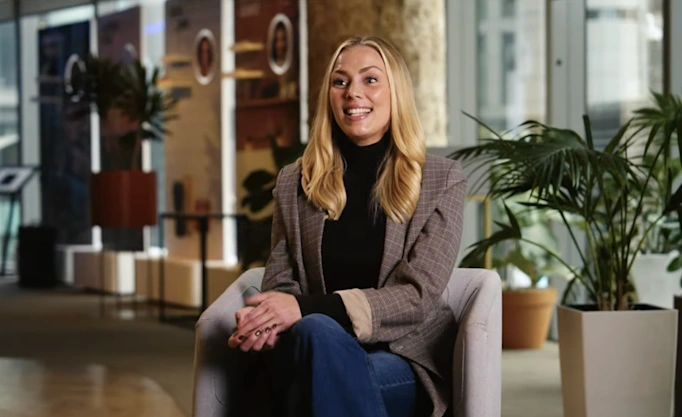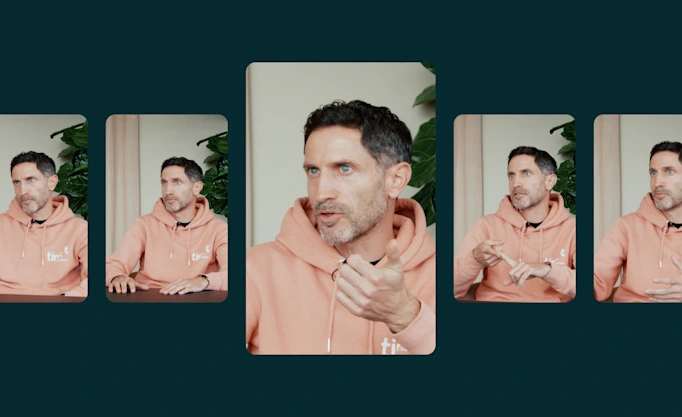Making way for open finance: insights from the EU Commission

Mattias Levin, Deputy Head of Unit at DG FISMA, oversees the European Commission's open and digital finance strategy for the EU. Last year, we talked to him about the benefits of open banking and how the pandemic opened up for digital finance.
Mattias Levin is the Deputy Head of Unit for the Directorate-General for Financial Stability, Financial Services and Capital Markets Union (DG FISMA).
His unit handles policy on digital finance at the European Commission, as well as the Digital Finance Strategy and the development of Open Finance for the EU.
We had a chat about how the pandemic has affected the financial markets, the digital finance boom and how open banking can aid post-pandemic economic recovery.
Mattias’ unit handles policy on digital finance at the European Commission (EC), which has taken great measures to repair the economic and social damage caused by the pandemic. They also make sure that digital transformation works for people and businesses.
In this interview, we get Mattias’ take on the adoption of digital finance and how it has been influenced by the pandemic.
What measures has the European Commission taken to support the financial system during the pandemic?
In light of the pandemic, the EU and national level has taken a broad range of measures to cushion the impact of the crisis. This includes, for example, providing more flexibility in the operation of fiscal rules. It also includes fiscal support via the EU’s long-term budget coupled with the Recovery and Resilience Facility to support Member States’ efforts to increase growth potential while contributing to the green and digital transitions.
In the financial sector, it’s our responsibility to safeguard consumer and financial stability. Since the last financial crisis, we’ve put in place measures to make sure that the financial sector would be in much better shape today.
In hindsight this was a very important decision. Despite much debate, it means that when the pandemic hit, the financial system could help cushion the economic fallout of the pandemic.
From your perspective, what effect has the pandemic had on digitalisation in Europe?
It’s clear that the pandemic has been an accelerator in the financial services industry. Digitalisation precedes the pandemic, but we’re now seeing it go even faster.
It’s remarkable that during this pandemic financial markets have continued trading, financial services have been undisrupted, and consumers across all demographics have been able to continue to participate in the economy. We’ve literally made a quantum leap in terms of adopting technology-enabled services.
Is the effect here to stay or will we go back to normal?
Sure, many things will go back to normal. But what we’ve learnt from this crisis will have a lasting impact. We’ve broken a lot of barriers that will forever change the things we do.
Financial executives are traditionally conservative, so I do not anticipate a revolution per se, but digitalisation has been quietly changing the industry for some time. I personally believe that the crisis has broken down many of the mental barriers as to what is possible, digitally.
For example, putting data in the cloud will be something that banks will be more open to in the future. That isn’t to say that there are no risks and we have put forward measures to address such risks in the form of a regulation on financial firms’ digital operational resilience. However, it is something executives will look to investigate as part of the cost considerations for legacy structures and that supervisors will have to monitor and assess.
How does the pandemic affect policy questions?
The unit that I’m part of looks towards the future. We’re responsible for bringing to life the digital finance strategy announced last year, during the height of the pandemic.
From our point of view, digital finance will facilitate the recovery but it does go beyond the recovery. It’s fundamentally designed around four pillars for the financial services industry.
The first is to tackle fragmentation in the single digital market. The second is to create an EU regulatory framework facilitating digital innovation. The third is to create a European financial data space. And the fourth is to address new challenges and risks from a technology perspective – especially in relation to operational resilience, as we need to ensure that the reliance on technologies does not jeopardise the integrity of regulated services.
Sometimes we take for granted that we have an EU to support a single market. The 27 countries all share a common ambition for trade and breaking down silos. Doing this for the financial services industry will largely build on support for digital identity across borders. The quid pro quo for banks is of course that they can target and onboard customers a lot better and cheaper across the EU.
How do you see open banking impacting financial institutions?
The benefit of open banking is a bit in the name: it’s open. It can give customers more control, an opportunity to better understand what services are available in the market, and it can lower the cost of switching.
This means that there are both opportunities and challenges for the banks. The Commission wants to increase competition in the market, but we also see that the opportunities for open banking go beyond traditional banking. At the same time, we have a regulated industry for a reason. Every change needs to be carefully calibrated to ensure financial stability, consumer protection and inclusion.
Next up is business-to-business data sharing, which we label Open Finance. Building on the evaluation of PSD2, we will put forward a framework for Open Finance. It is a key component in the digital finance strategy and an area we will be keeping a close eye on.
This interview was originally featured in Tink’s 2021 survey report ‘Open banking in the post-pandemic world’.
For more crystal gazing into the future of open banking, read Tink CEO David Kjellén’s predictions for 2022.
More in Open banking

2025-11-20
3 min read
Tink powers the UK’s first cVRP transaction with Visa A2A
In partnership with Visa, Kroo Bank, and Utilita, we’ve just helped demonstrate the UK’s first commercial variable recurring payment (cVRP) using the Visa A2A solution – and it’s a big step forward for how people make regular payments.
Read more

2025-06-09
11 min read
The case for “Pay by Bank” as a global term
Thomas Gmelch argues that "Pay by Bank" should be adopted as a standard term for open banking-powered account-to-account payments to reduce confusion, build trust, and boost adoption across the industry.
Read more

2025-06-02
3 min read
Tink joins Visa A2A – what it means for Pay by Bank and VRP
Visa A2A brings an enhanced framework to Pay by Bank and variable recurring payments (VRP) in the UK, and Tink is excited to be one of the first members of this new solution.
Read more
Get started with Tink
Contact our team to learn more about what we can help you build – or create an account to get started right away.
